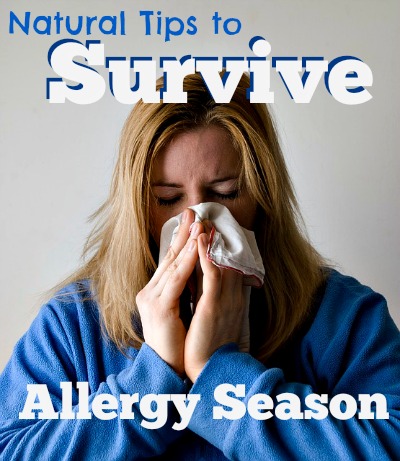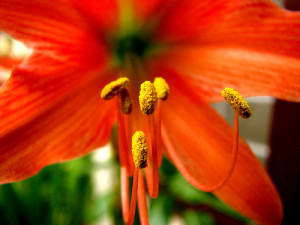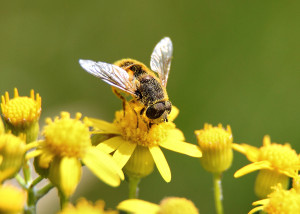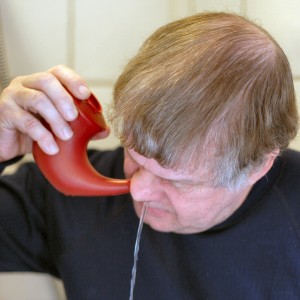 This last weekend was absolutely beautiful where I live. The trees are budding, and many of the smaller flowering types are just beautiful, the flowers are in full glory and the whole world seems to officially be back to life. And with all of that beautiful plant life and growth comes pollen. And pollen, at my house, means allergies.
This last weekend was absolutely beautiful where I live. The trees are budding, and many of the smaller flowering types are just beautiful, the flowers are in full glory and the whole world seems to officially be back to life. And with all of that beautiful plant life and growth comes pollen. And pollen, at my house, means allergies.
Fortunately, if you’ve been sniffling and suffering this summer, I have good news: you aren’t alone, and there are things you can do about it. According to the FDA, some 36 million people in the United States suffer from some form of allergies. And, while there are many different drugs that can effectively fight allergy symptoms, there are also several methods to fix this problem naturally so you can live through the allergy season and actually enjoy spring and summer like everyone else.
But, before you can even begin to try and address allergies, it helps to understand what’s going on inside that pesky nose of yours.
What are pollen allergies?
 As it turns out, most pollen allergies are actually the result of a case of mistaken identity. Pollen isn’t actually harmful to your system at all, but sometimes your body confuses pollen spores for more damaging things like fungal spores or dust mites. So, to try and combat this invader, your body releases histamine, a chemical produced by your immune system. Histamine is what makes your nose runny, eyes watery and makes you sneezy and generally miserable. Many drugs, known as antihistamines, stop the creation of histamines to combat the symptoms.
As it turns out, most pollen allergies are actually the result of a case of mistaken identity. Pollen isn’t actually harmful to your system at all, but sometimes your body confuses pollen spores for more damaging things like fungal spores or dust mites. So, to try and combat this invader, your body releases histamine, a chemical produced by your immune system. Histamine is what makes your nose runny, eyes watery and makes you sneezy and generally miserable. Many drugs, known as antihistamines, stop the creation of histamines to combat the symptoms.
However, if you don’t want to spend the whole summer taking various drugs which tend to make you sleepy or have other side effects, you do have some other options.
Tips to Survive Allergies
There are plenty of different methods to try and alleviate allergy symptoms, and you can feel free to try any combination or all of these until you find something that works.
- Drink herbal tea – I absolutely love herbal tea, and there are several different kinds that are said to help with allergies, especially peppermint tea and nettle tea. I know it sounds like a bad idea, but don’t worry though–the nettle tea is totally safe and is actually a really beneficial herb.
- Eat local raw honey or local bee pollen – I know people who swear by taking a spoonful of local raw honey twice a day, or chomping on some bee pollen to reduce allergies, but it’s a little controversial. The idea is that the local honey/pollen will work to help vaccinate you against the local pollens. There have been some studies that show it is mildly effective, but many sources also claim that it is a placebo as the pollen most people are allergic to is carried by the wind, and therefore not likely to make it into bee pollen/honey. Additionally, honey should never be given to infants under a year.
- Shower more often – Whenever you go outside, that pollen and such will stick to your clothes and hair. If at all possible, shower and change your clothes when you come inside to help lessen your exposure. The steam from the shower will also help open your sinuses.
- Steam it out – If you don’t feel like showering, you can also simply use steam from a bowl, pot or even a store-bought vaporizer to help clear your sinuses and open your nasal passages. Some people claim that eucalyptus essential oil will also help, so you might also try adding a couple drops to the water or shower as a boost.
- Drink more liquids – Drinking a glass of water will help flush out your system and may temporarily lighten symptoms. I personally find this works for me in between other methods, but not by itself. Staying hydrated also helps your body regulate itself.
- Sleep in – Depending on what you’re allergic to, time when you’re outside. Many flowering trees and plants release their spores early in the morning, while ragweed does so in the middle of the afternoon. If in doubt, try and stay inside until the evening when possible.
- Filter your air – When inside, try and keep your windows closed in the mornings and afternoons and use an air conditioner or dehumidifier to filter the air. Using a High-efficiency particulate air (HEPA) filter in your house may also help.
- Saline sprays/Neti pots – Saline sprays are far more common in the West than neti pots, but both have the same function: to flush the irritants out of your nasal passages to stop the production of histamine.
- Take Vitamin C – Some sites suggest amping up your vitamin C during allergy season, as allergies are the result of your immune system getting confused. Personally, I’ve never noticed any difference with this method, but it might be worth a shot.
- Change your diet – There are several foods that can help alleviate allergy symptoms including apples and red onions (which contain quercetin, a compound that can reduce histamine) and walnuts (which contain vitamin E which may help reduce allergic reactions).
- Take meds at night – If push comes to shove and you simply must take traditional medicine for your allergies, try taking it at night instead of in the morning, as most allergy-sufferers tend to have the worst reactions in the morning.
There are probably many methods that I haven’t mentioned, but these are some of the simplest solutions to one of the most annoying parts of spring. If you decide to try out some of these home remedies, be sure to let us know how it works for you! Or, do you know any other home remedies to alleviate allergy symptoms? Share them with us in the comments!




Leave a Reply